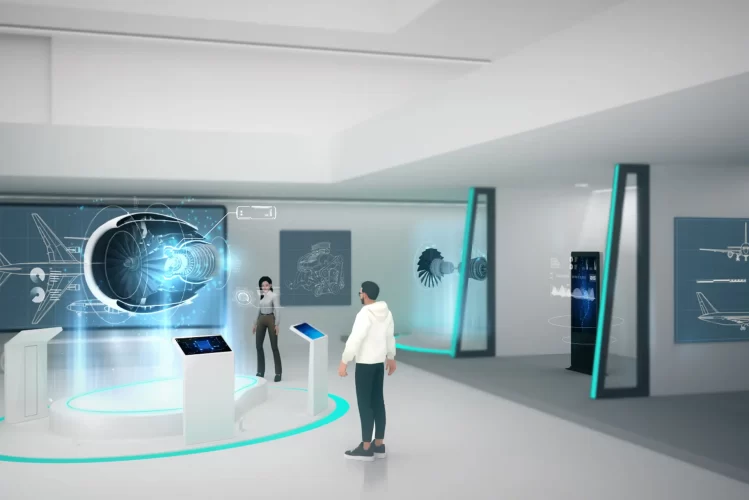How AI And The Metaverse Are Shaping The Future Of Education

Categories :
From virtual classrooms to modified learning formats, and flexible course modules….. the way we think of education will transform with the current technological revolution. Thanks to increased access to the internet and application of emerging technologies, this is how the future of AI and metaverse in education looks like.
The future of education is at the brink of a profound transformation, driven by the convergence of artificial intelligence (AI) and the metaverse. By 2050, the traditional classroom may become a relic of the past, as students embark on a journey of self-directed, personalized learning experiences in virtual realms.
The metaverse leverages these technologies and other emergent tech including Virtual Reality (VR), and Augmented Reality (AR) to offer more immersive and engaging educational experiences. It has the potential to emerge as a groundbreaking avenue for global learning opportunities.
A quantum leap by AI: Knowledge at the speed of thought
By 2050, AI's role in education is projected to be transformative, allowing students to acquire knowledge at an unprecedented pace. This quantum leap involves AI tutors that can instantly transmit information and insights directly into a student's brain, bypassing conventional learning processes.
Imagine a scenario where students can access complex subjects, languages, or scientific theories with a simple neural connection. This leap in educational technology is poised to redefine traditional notions of learning speed and efficiency.
This innovation promises to revolutionize how students acquire and apply knowledge. No longer constrained by the limitations of textbooks or traditional teaching methods, learners will have the world's wealth of information at their mental fingertips. Moreover, AI will adapt its teaching style to cater to individual students' needs, ensuring optimal comprehension and retention.
As a result, the educational landscape of the future will be characterized by not just the speed but also the effectiveness of knowledge acquisition, empowering individuals to tackle complex challenges and drive innovation at an unprecedented rate.
Having said this, AI will not replace teachers, but will empower them to guide students in more meaningful ways. AI-driven systems can provide real-time feedback, adapt to individual learning styles, and offer a level of personalization that was once inconceivable.
Virtual Reality: A window to infinite learning possibilities
By 2050, virtual reality is poised to become the primary medium for learning across various subjects and fields. This immersive technology will provide students with unparalleled opportunities to explore dynamic and interactive environments that transcend the boundaries of traditional classrooms.
Whether it's embarking on a journey through the cosmos, walking among dinosaurs, or delving inside the human body for an anatomy lesson, VR will enable learners to engage with educational content in ways that are not only captivating but also deeply memorable.
This shift towards VR-based education signifies a departure from static, text-based learning and ushers in an era where experiential, 3D, and interactive educational content take center stage, making learning both enjoyable and effective.
Moreover, VR's potential in education extends beyond subject matter to encompass practical training scenarios. Fields such as medicine, engineering, and aviation can harness VR to offer lifelike simulations and hands-on experiences, allowing students to develop essential skills and competencies in a safe and controlled metaverse environment.








